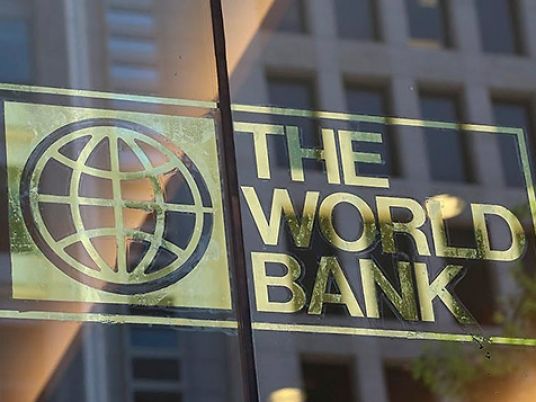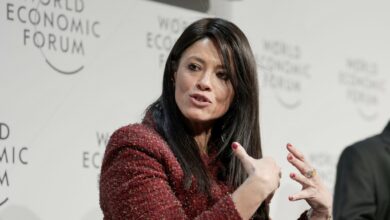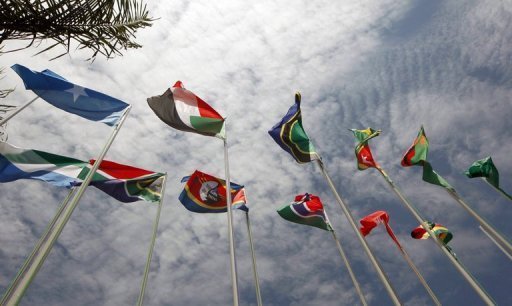
Egypt’s Minister of International Cooperation Rania al-Mashat met with President of the World Bank Group David Malpass during her official visit to the US.
The meeting was attended by Farid Belhadj, Vice President of the World Bank for Middle East and North Africa Affairs, Marina Weiss, Director of the World Bank Office in Egypt, and Raji Al-Atribi, Alternate Executive Director of Egypt to the World Bank.
The meeting discussed bolstering economic and development cooperation and the future of the strategic partnership between Egypt and the World Bank.
The discussions also covered expanding cooperation in areas such as comprehensive health insurance, social housing projects, the financial inclusion of women, and efforts to counter climate change.
Mashat emphasized Egypt’s keenness to continue dialogue and consultation with the World Bank, especially in light of the priorities of the Egyptian government, its sustainable development goals, and various development efforts underway in the country.
The Cabinet, meanwhile, has formed two committees, the first of which is the Public Debt Management Committee, which aims to organize external borrowing, in order to optimize the use of development loans, in line with the sustainable development plan, where reducing the public debt is a priority for the state.
The second is the Structural Reform Committee, which aims to encourage greater private sector contribution to development projects.
Mashat said Egypt has a comprehensive national program to confront population growth, which is one of the biggest challenges facing development, especially after Egypt’s population officially hit 100 million this month.
The plan, according to Mashat, is based on efforts from the ministries of International Cooperation, Health, Social Solidarity, and Trade and Industry in cooperation with civil society organizations.
Mashat said that the program contributes to achieving four sustainable development goals, namely the eradication of poverty, improving the health sector, achieving gender equality, and economic growth.
For his part, Malpass stressed the bank’s eagerness to enhance cooperation with Egypt and support the priorities of the Egyptian government.
During the meeting, the two sides touched on the Wold Bank’s Doing Business report and the possibility of Egypt’s progress on the index through implementing economic reforms.
Cooperative projects between Egypt and the World Bank Group are valued currently at about $US 8 billion, divided into $US 5.8 billion for the International Bank for Reconstruction and Development and $US 2.2 billion in investments for the International Finance Corporation in Egypt.
During the meeting, Malpass also expressed his optimism about the positive steps that Egypt was taking towards economic growth, especially those related to improving the economic climate for the private sector.
Activity in Egypt’s non-oil private sector has continued to shrink as sales and export orders fall, with the IHS Markit Egypt Purchasing Managers’ Index (PMI) for the non-oil private sector sliding to 46.0 in January, compared to 48.2 recorded in December and far below the 50.0 threshold that separates growth from contraction, according to Reuters.
The IMF, having branded the 2016 economic reform program a success, even recommended that Egypt implement a new package of reforms geared towards supporting and developing the country’s private sector.
Egypt devalued its currency by 48 percent in 2016, allowing it to float freely, in order to meet a key demand by the IMF and secure a three-year $US 12 billion loan from the fund.
In November 2019, inflation in the country reached its lowest level in years after having spiked to 33 percent following the implementation of tough economic reforms in 2016. In December, a decline in the dollar put the exchange rate below the LE16 mark for the first time in three years.
Former vice president of the BLOM Egypt Bank Tarik Metwally has said previously that the decline in the price of the dollar against the Egyptian pound could be attributed to efforts to improve the deficit in trade balance, the increase in foreign exchange earnings from tourism, foreign investment in treasury bills, and remittances of Egyptians abroad.
Meanwhile, Egypt’s Gross Domestic Product (GDP) achieved growth of 5.6 percent during the first half of the 2019/2020 fiscal year, according to Egypt’s Minister of Planning and Economic Development Hala al-Saeed.




